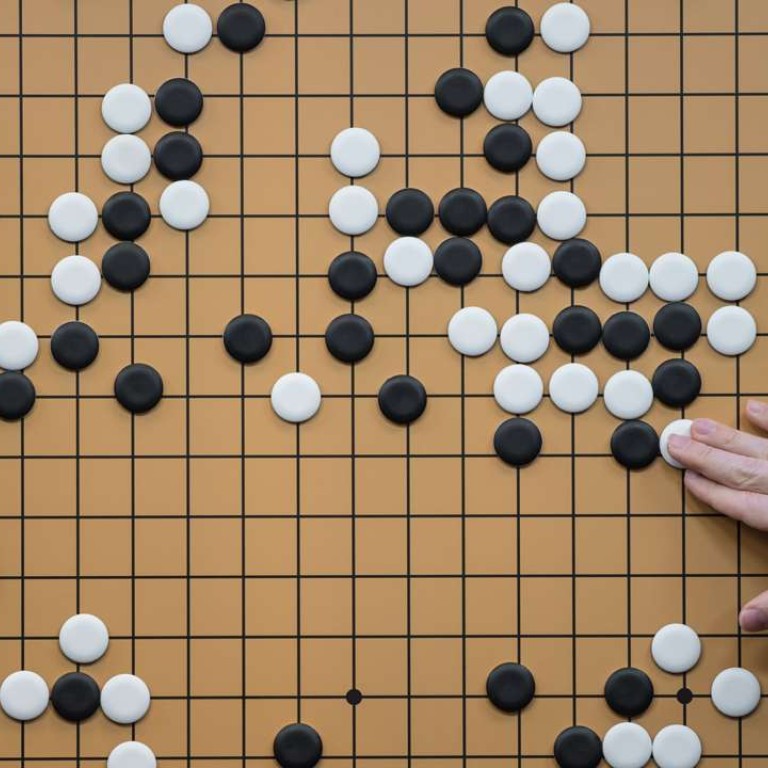
Man vs machine: AlphaGo AI to face the world’s best human Go player in China
Mouth-watering encounter will see Google’s AI take on China’s Ke Jie at the ancient strategy game in May as part of a conference in Wuzhen
After sweeping wins over some of the world’s Go masters, Google’s DeepMind artificial intelligence is coming to China, the birthplace of the millenia-old board game, to pit its wits against the very best the human race has to offer.
London-based DeepMind said on Monday that AlphaGo, its Go-playing AI, will have a classic one-on-one, best of three match against the world’s No 1 player, China’s Ke Jie in late May.
“AlphaGo is beyond the imagination of Go players,” said Ke Jie during an event in Beijing on Monday.
“It feels like I am standing at a point where history changes. It is a great honor to witness a strong competitor like AlphaGo and I will do my best and will not give up easily.”
The mouth-watering encounter between AlphaGo and 19-year-old Ke will form part of a five-day summit in Wuzhen, a town in East China’s Zhejiang province, that will explore how AlphaGo has created new knowledge about this ancient game of strategy. It will also focus on how the technologies behind machine learning and artificial intelligence are bringing solutions to some of the world’s greatest challenges into reach.

“Clearly, there remains much more to learn from this partnership between Go’s best human players and its most creative AI competitor. That’s why we’re so excited to announce AlphaGo’s next step: a five-day festival of Go and artificial intelligence in the game’s birthplace, China.”
The highly anticipated game, which is seen as the ultimate human versus machine Go competition, comes at a time when companies around the world are racing to build up research capacity in AI. They are betting big that the technology will be the next big thing in the industry, encompassing everything from facial recognition software and voice controlled home appliances to autonomous vehicles.
Instead of diminishing the game, as some feared, artificial intelligence has actually made human players stronger and more creative
AlphaGo was thrust into the limelight in March 2016 when it beat South Korea’s Lee Sedol, one of the world’s top Go players, in a real-world game. It then secretly took on and beat several of the world’s most accomplished players, including Ke Jie, under the name “Master” in online games in January.
He claims that he still has “one last move” to defeat AlphaGo, after he lost three games to the AI during the test during an apparent stay in hospital.
“If I were not in hospital, I would have used the one last move I prepared for a week. It’s a bit of a shame,” Ke wrote on Weibo, China’s version of Twitter, shortly after Master revealed its true identity.
However, Lee Kai-fu, the former Greater China president of Google and founder of the venture capital firm Sinovation Ventures, said there is “zero” chance that Ke will beat his digital opponent.
“The game between Ke Jie and AlphaGo is no longer meaningful from the scientific point of view. From now on, we should pay more attention to the commercialisation of AI in areas such as finance, health care and education, and how it is going to make the world a better place,” Lee said in a post on WeChat Moments on Monday.
Lee said AI can replace humans in many areas that deal with massive amounts of labelled data.
According to recent research by UBS, AI could produce economic value of between US$1.8 trillion and US$3 trillion a year by 2030 in Asia─by introducing new product services and categories, cost savings arising from better products, lower overall prices and improvements in lifestyles.
However, the widespread adoption of AI could put up to 50 million jobs in Asia at risk in anther 15 to 20 years, the research found.

